Adriana Herrera is the founder and CEO/CTO of EpicHint, as well as a social entrepreneur, patient advocate, data junkie, technologist, and surfer.
Adriana was inspired to build EpicHint after her friend used cannabis to aid in his recovery from early onset colon cancer and was provided poor product recommendations by Budtenders.
Prior to founding EpicHint she used interdisciplinary principles and agile methodologies to build, and grow, two tech startups; a B2B competitive analytics platform for Internet Retailer 500 e-commerce marketers that protected personal identifying information (GrandIntent), and a B2C e-commerce recommendation engine for sustainable and fairly made shopping (FashioningChange). She is known for being able to translate a product’s social mission into viable financials.
Her work using tech for social good earned her an invitation to contribute a column to The New York Times, funding from Facebook to participate in an engineering bootcamp, and global recognition in media such as Entrepreneur Magazine as a “Do Good Business Entrepreneur To Watch”, NBC Universal as a “Top 10 Latino Innovator”, amongst others.
When not working she surfs, loves to cook with fresh locally sourced ingredients, mentors girls in STEAM, advises startups, and hacks on side projects in skills-based learning, artificial intelligence, telemedicine, marketing tech, health and wellness, and cannabis.
Thank you so much for doing this with us! Can you tell us the “backstory” about what brought you to the cannabis industry?
After building two high growth investor backed startups, completing two tech accelerators (including the number two ranked accelerator in the nation, MuckerLab), and participating in an engineering bootcamp funded by Facebook I was fortunate to be able to go on sabbatical.
In 2018 I purchased a one way ticket to travel around Mexico. My only goal was to surf, eat my weight in tacos, reconnect with nature, people, and simplicity.
After a few months of endless beach time and surf I started to crave the need to build something. I was drawn to the cannabis industry because a dear friend used cannabis to aid his recovery from early onset colon cancer. When he would try to purchase his medicine at a dispensary he received horrible product recommendations. The recommendations he received typically coincided with a product that was being promoted. No one fighting for their life should have to self advocate for medicine because the retailer prefers to push a weekly promotion. So in between surf sessions I started researching cannabis education and dispensary retail training.
Through my research I found that job training programs for entry level minimum wage positions such as a dispensary retail operator (i.e. Budtender), charge between $250.00 – $7,000.00, not including test fees. Even the industry nonprofits charge $150.00+ for dispensary training. None of the programs guarantee employment.
Charging hundreds of dollars for minimum wage job training results in a less diverse workforce where one must be financially privileged to get an entry level job.
The primary catalyst to build EpicHint was to ensure access to meaningful job training so Patients do not have to self advocate. After researching the landscape I was infuriated by the barriers “green rush” companies have created and shocked at how antiquated hiring practices are. My research and experience with my friend inspired me build a passion project that would house, organize, and democratize cannabis information to improve the operational efficiencies of cannabis businesses and better Patient/ Customer experiences.
So, in between surf sessions I built EpicHint. Since the first day of operation we have provided free comprehensive cannabis education and job training to any individual job seeker. To be sustainable EpicHint has developed SaaS enterprise tools for dispensaries, cannabis brands, and other cannabis businesses.
Building EpicHint has been very rewarding. I’m looking forward to 2020.
Can you share the most interesting story that happened to you since you began leading your company? Can you tell us what lesson you learned from that?
I never anticipated I would build a software for the cannabis industry. It happened “accidentally”. The most interesting experience I’ve had since founding EpicHint has been watching my parents reframe their views on cannabis. They previously viewed cannabis as something bad that only “lazy drug addicts” or “violent cartel” use to “the ganja” a medicine that improves health and helps our communities through taxes.
I grew-up in a Catholic Mexican-American household. My parents don’t drink or smoke and both worked in healthcare. Both are law abiding citizens that believe in science and subscribe to sustainable living tenets. We grew-up with the view that all drugs, including cannabis, were bad. Their opinion of cannabis was emotionally based (as is the case for many Latinos). For decades the sale of illegal cannabis, alongside other drugs, has been responsible for violence, kidnappings, deaths, and destruction in Mexico and Latin America.
Given their pre established view of cannabis, I knew my parents would have reservations about my building software for the industry. In order to successfully explain my choice to build EpicHint I knew I would have to appeal to their rationale, emotion, and values of giving back.
Over a family dinner (when everyone was in a good mood) I shared with them the history of cannabis, the human Endocannabinoid System, the impact of legal cannabis regulation, how cannabis has improved the health of many friends, and details of what I was working on.
The information I shared included…
The History of Cannabis
The first recorded use of medical cannabis dates back to 4000 B.C. China. It has been used by cultures all over the world for medicinal and religious purposes. Cannabis was brought to the US by immigrants fleeing the Mexican Revolution. The term “Marijuana” is actually a racist term meant to mean “The Devil’s Weed” and refer to Mexicans. The term’s origin is racially motivated and was created to antagonize Mexican immigrants as well as place distance between the plant, its biological genius, and its uses for food, fuel, building materials, and medicine (a strategic separation created by industries that feared economic competition).
The Body’s Endocannabinoid System
The human body contains the Endocannabinoid System, a system that is built to make use of cannabis’ properties via the cannabinoids, terpenes, and flavonoids in the plant.
Legal Cannabis Means Regulation
When drugs are sold illegally disputes are handled with violence because there are no laws to govern otherwise. When a dispute occurs in a legalized industry the dispute is handled in court which means little to no back alley violence.
Regulation Means Tax Dollars for Social Welfare Programs
States with legal recreational and medicinal cannabis are allocating taxes from cannabis sales to social welfare programs. These social welfare programs range from fixing potholes, to subsidizing underfunded schools, to health care and drug abuse prevention programs. The allocation of taxes to programs that otherwise would be underfunded is a win for everyone.
The Use of Cannabis to Save and Improve Lives
My parents have been aware of cannabis’ benefits for persons with glaucoma and epilepsy. To personalize the medical use of cannabis I shared with them several stories of friends who use cannabis to treat depression, PTSD, insomnia, colon cancer, anxiety, IBS, shoulder inflammation, and migraines. Humanizing the use of cannabis by associating its medicinal use with friends they know replaced the view that cannabis is used only by “lazy drug addicts”.
The Result of the Information Shared
To my surprise, my Catholic old school Mexican-American parents were okay with my building software for the cannabis industry. The information they learned painted a fact based picture of cannabis that replaced their emotionally based opinion of cannabis. They immediately started asking questions about what cannabis can be used for and how EpicHint works.
My parents don’t consume cannabis but love my friends and were happy to hear of medicine that helped them move towards wellness. Learning about the history of cannabis, our Endocannabinoid System, how taxes are used from the sale of cannabis, and how friends use cannabis to improve health reframed cannabis for my parents. They now adorably refer to cannabis as “the ganja”, support the legal sale and use of cannabis (preferably for medicinal purposes), share what they learn about cannabis with other family members, and support my choice to build my company.
What I Learned
I never anticipated my parents would support the legalization of cannabis. Their ability to completely reframe their views has by far been the most interesting thing that has happened since I started EpicHint.
Through the process I learned that it is very important to meet people where they are. Meaning, I respect my parents beliefs. I also know how they think and what they value. This allowed me to present my work building software for the cannabis industry in a way they “could hear it”. I believe this allowed the conversation to have a successful outcome. I have continued to use this “meet people where they are” tactic. It has been very helpful as I build EpicHint.
Can you share a story about the funniest mistake you made when you were first starting? Can you tell us what lesson you learned from that?
Our Community Support software shows the flags of our visitors and Learners. I love to watch different flags on EpicHint at the same time. It brings me a lot of joy. To watch the flags while working I’ll run the software on my phone and have it next to my computer.
When someone requests support the prompt is a very loud cartoon sounding “Uh Oh” that continues until the request is responded to.
I’ve been in meetings and have forgotten to turn the Community Support app off. All of a sudden, in the middle of a conversation, a loud “Uh Oh” hits the room. It sounds like a Muppet lives in my purse. Without fail people laugh and ask what the sound was.
To avoid embarrassment I explain that I left the app running, share how I love watching the flags, show how someone is actively responding to the support request, and apologize for the interruption. Fortunately, to-date the couple times it has happened everyone thought it was pretty funny and kind of cool.
While not a life changing lesson… I’ve learned to double check that I’ve turned off the software before walking into a meeting.
Do you have a funny story about how someone you knew reacted when they first heard you were getting into the cannabis industry?
While catching up with a SaaS MarTech founder in San Diego I shared what I was working on. He burst out laughing and pompously said “Cannabis isn’t an industry”. The experience wasn’t particularly funny to me so much as it was to him.
There are people that are open to learning and people who believe they know everything. He falls into the later category. Rather than waste my time attempting to educate him about the cannabis industry I cut the conversation short and have kept my distance.
None of us are able to achieve success without some help along the way. Is there a particular person who you are grateful towards who helped get you to where you are? Can you share a story?
My mother is the person who has helped me get where I am. As an adult she is an honest confidential sounding board. As a young girl she modeled behaviors of persistence, compassion, ingenuity, and strength for me everyday. I equate one experience with her as the catalyst to my becoming an entrepreneur…
When I was a little girl I had a toy break. I was devastated. I laid myself on the living room floor and cried. My mother rushed over to me because she thought I hurt myself. I told her my toy broke. Rather than have sympathy for me she scolded me and told me to “Get up and find a solution”. I remember being stunned. She reached out and picked me up with one arm and picked up my toy. She then put the toy in front of me and repeated “Find a solution”. She then showed me how to fix it and said “There is always a solution”.
I went from a feeling of being devestated, to stunned, to disbelief (that my toy could be fixed), to feeling dumb for having cried about my broken toy. The experience was very formative. No matter what I have come across I hear her words “Find a solution. There is always a solution”. This mindset has allowed me to develop solutions when others have given up.
I am very grateful for what she has taught me and for her support.
Are you working on any new or exciting projects now? How do you think that will help people?
Yes, EpicHint just released a new platform! The legalization of cannabis in the United States has created a multi-faceted industry that is on pace to generate $48 Billion in 2019. In the next three years the cannabis industry will grow from 175,000 employees to 475,000+ employees.
The need to hire employees for brand new positions as well as the need to replace employees that turnover will cost the cannabis industry at least $1.4 Billion in the next three years with $438 Million being wasted replacing bad hires.
A New Market Using Old Processes Results in $438 Million in Operational Loss
The cannabis industry is an emerging market with no established trained workforce. Despite modern technology, the industry continues to use the resume as its primary hiring tool; a tool that has not changed since its first recorded use in the late 1400s by Leonardo da Vinci.
I firmly believe the established processes to hire are broken. The cannabis industry is using antiquated broken processes to hire for positions that have never existed. This is a misstep resulting in the industry’s operational deficit/ loss of $438 Million over the next three years (note this value does not account for indirect productivity losses).
EpicHint’s New Knowledge-as-a-Service Platform Saves the Cannabis Industry from Loss
EpicHint’s new Knowledge-as-a-Service platform gives dispensaries, cannabis brands, and other cannabis businesses the ability to efficiently disseminate cannabis training to all job applicants and hire the most qualified using data that is output from their proprietary company-specific free cannabis university.
How-it-Works
1.) A dispensary, or other cannabis business, creates a company university by selecting from a library of over 75 cannabis education and job training topics and/ or uses the platform to create new topics
2.) Applicants enroll in the dispensary’s free branded university, upon graduation from the university the Learner/ applicant unlocks the ability to submit a standardized anonymous resume
3.) Hiring managers access standardized resumes as well as qualitative and quantitative data on what applicants know and user behavior that correlates with strong work ethic to identify, interview, and hire top applicants
The Most Qualified Applicants Are Hired and Help Generate More Profit for the Business
EpicHint’s Knowledge-as-a-Service platform helps dispensaries and cannabis industry hiring managers hire the top 3% of their applicant pool by:
* Removing financial barriers to cannabis job training
Through EpicHint every job applicant gets equal access to comprehensive cannabis education and job training and does not need to be financially privileged to attend a “certification” program. We create an equal playing field for all job applicants while simultaneously building a well-trained applicant pool that in-turn results in well-trained high performing employees.
* Anonymizing and standardizing resume submissions from university graduates
Even the most experienced hiring managers introduce implicit bias into the hiring process. EpicHint helps remove implicit bias from the hiring process by ensuring hiring managers only receive anonymous standardized resumes from university graduates. This helps hiring managers focus on the content of the resume and the individual’s potential to contribute to the company.
How We Are Helping People
The Web is littered with job postings from cannabis businesses requesting a resume and several photos. This is an extremely bias filled (not to mention illegal) way to hire. EpicHint creates a level playing field for all cannabis industry job applicants by democratizing cannabis training and building the capacity of cannabis businesses to identify and hire the best fast using fair efficient processes and data.
If an applicant is not hired they are still able to apply the knowledge they gained to get hired at another cannabis company. The result is a well-trained authentically diverse applicant pool which results in a well-trained authentically diverse cannabis industry.
EpicHint is a social enterprise. We believe in equal access to education and job training and that when these resources are made available people will rise to the occasion. As such, we reinvest revenue to provide free training to any individual looking to get hired into the cannabis industry with an emphasis on supporting underrepresented groups (i.e. Latinos, Blacks, LGBTQ, Seniors, Persons with Disabilities, Veterans, Women) and individuals who have been disproportionately impacted by the previous criminalization of cannabis activities. To-date we have trained, and helped employ, cannabis professionals in 33 US states/ territories and eight countries.
To my knowledge EpicHint is also the only organization offering 100 percent free job training and job preparation to any person looking for employment in the cannabis industry. I expected nonprofits to offer free training. Sadly, even grant funded nonprofits are charging $150.00+ for dispensary training. Financial barriers to cannabis training and job preparation does the entire industry a disservice.
We are helping people by removing all barriers to comprehensive cannabis education, job training, and access to real equal opportunity employment opportunities.
Ok. Thank you for all that. Let’s now jump to the main core of our interview. Despite great progress that has been made we still have a lot more work to do to achieve gender parity in this industry. According to this report in Entrepreneur, less than 25 percent of cannabis businesses are run by women. In your opinion or experience, what 3 things can be done by a) individuals b) companies and/or c) society to support greater gender parity moving forward?
Two things cannabis companies can do to build greater gender parity and diversity include…
1.) Create Top-Down Accountability
A report by McKinsey & Company titled “Delivering Through Diversity,” found that diversity increases profit by 21% when compared to competitors with non-diverse teams. C-Suite executives have a fiduciary responsibility to investors to ethically generate the largest return on investment. Hiring diverse talented individuals is an easy to implement tactic that increases profit.
Every board itself should model the diversity and gender parity the company seeks. Each meeting should include a report on progress made to achieve gender parity and authentic diversity. If KPI reports are subpar and directional metrics are stagnant the executives should be replaced for not doing their job to maximize profit. Top-down stakeholder accountability will move the needle.
2.) Create Mentorship Programs
Every person can benefit from a mentor. I have several. When companies intentionally create mentorship programs they signal to employees that they are investing in their growth. Mentorship programs accelerate individual capability, increase productivity, increase morale, and support employee retention. Mentorship programs give women and other underrepresented team members a platform to connect with C-suite executives in a meaningful way. These connections mature overtime resulting in promotions and advancements that otherwise may go overlooked. Successful mentorship programs will serve as a recruitment tool and make the company attractive to talented women and other talented individuals from underrepresented groups.
One thing a woman can do to advance her cannabis business or career is to…
1.) Recognize “No” is just a position of the moment.
I have never accepted a “No” as an absolute. When closing a client, securing a strategic partnership, recruiting a team member, or other, “No” has never been definitive. “No” is just a position of the moment.
When I founded my first e-commerce company the mentor I wanted sold his company to Google and it became Google shopping. He dismissed my requests to meet for over a year. At one point I noticed he was going to be giving a talk at an accelerator in Los Angeles. I requested 15 minutes of his time before his talk. He ended up giving me an hour. His presentation was partially on what makes a good founder. He surprised me when he pointed me out and said “Persistence makes a good founder” and publicly shared that I first contacted him over a year ago and that he was going to take me under his wing.
Not every “No” will flip into a “Yes” but if you don’t go back and try you allow yourself and other women to be dismissed. Be persistent and unapologetically go after what you want.
You are a “Cannabis Insider”. If you had to advise someone about 5 non intuitive things one should know to succeed in the cannabis industry, what would you say? Can you please give a story or an example for each.
1.) You don’t have to be a cannabis enthusiast to work in the cannabis industry.
I was inspired to create EpicHint because my dear friend used cannabis to aid his recovery from early onset colon cancer. I am a Patient Advocate. On occasion I’ll use a topical for a surf injury that will flair up in my knee or I’ll smoke to alleviate bad cramps. If I need to medicate I don’t work. I think adult use cannabis is preferable to drinking alcohol but I choose not to consume outside of my home because laws have not matured enough to fully protect adult use consumers.
I was initially worried that I would have a hard time in the industry because I’m not “a stoner”. I feared I wouldn’t be able to develop meaningful connections with people. That has not been the case. My journey and experience with cannabis is my own. It is authentic. My genuine interest in other people, their journeys, and my confidence in my own journey resonates with people. I have not been hindered at all. You don’t have to be a cannabis enthusiast to work in the industry.
2.) People will want a piece of your company for doing nothing. Don’t give it to them.
I have had a plethora of people reach out to me and peacock about their network, jobs they have had, events they run, and more. Each person has said “I love what EpicHint is doing. I want to be a part. All I need is X% of equity”.
My answer is always the same…”Lets run a test project with success metrics and see how you do. If you perform well we will create a compensation package that reflects contribution. It will include equity with a vesting schedule.” Not one of the people that has approached me has taken the traditionally structured recruitment project yet they all assumed I’d be stupid enough to give them equity for words not results.
If you need to negotiate fair equity compensation I’m a big fan of these two tools to calculate equity percentage:
* FAST Agreement
* Startup Equity Calculator
The industry is filled with opportunists and charlatans. Be diligent in your assessment of who you work with and don’t give up equity for anything but results.
3.) Hold other cannabis professionals accountable.
I have had CEOs, founders, high level executives, and sales people request meetings, confirm, and then be extremely late or not show up. I always give people the benefit of the doubt and contact them to make sure they are okay. Every single time the person has said “something came up” or “I forgot”.
It takes less than 30 seconds to show personal and professional courtesy and text a person that a schedule has changed. Regardless of who the person is I will always say “I was worried about you. I’m glad you’re okay. I will always show you personal and professional courtesy and text or call you if I will be late or can’t make it to a meeting. Are you able to do the same for me in the future?”.
The men I have this to are always stunned, apologetic, and in a weird way it earns their respect. Women on the other hand either stop responding, become emotional and defensive, or apologetic but then do it again (after the second time they make it clear they are not aligned with the way I do business and I cut them off).
I try to always be understanding, give people the benefit of the doubt, and be kind while not being a doormat. It’s important to be clear on how you expect to be treated otherwise people will waste your time because others allow them to get away with bad behavior.
4.) Say “No”
I have watched the manager of a well respected vertically integrated dispensary have a meltdown. The meltdown was the direct result of her attempt to do everything on her own and not ask for help. She was overloaded with to-dos and had yet developed the skills to successfully complete all of the tasks on her list.
She is smart and capable. Sadly, her meltdown played into the stereotype of women not being able to lead because “they are too emotional.” Her team walks on eggshells around her. The work culture is punitive, based on her mood, and employees are turning over.
There is nothing wrong with saying “No” or creating a system to prioritize tasks with agreed to deadlines. Saying “No” and prioritizing means you have the skills to assess your ability to be efficient and successful with the resources available to you. It is perfectly fine to say “No” if you know a task is out of your skill set. This opens the door to have a conversation about supporting the development of that skill set.
Saying “No” will help you focus, efficiently allocate resources, and develop new skills. By saying “No” you are saying “Yes” to your long term success.
5.) Know when to pivot
I have come across “cannabis companies” that have not made more than $10,000.00 in four years of operation yet the team is working full-time. There are companies that succeed at scale with no revenue. A great example of this type of company is Twitter. Twitter has never made a profit. These companies are not Twitter. They are formed by enthusiasts with no business acumen. No revenue and no scale after four plus years is not a company it is a glorified hobby.
Life is short. Time is the most valuable thing we have. There is nothing wrong with accepting something didn’t work as long as you learn from it, move on to something else, and don’t repeat the same mistakes.
The companies that I refer to as glorified hobbies have teams filled with ego. They are too proud to pivot to something else. As a result they continue to drain resources, live off credit cards (because no investor will fund them), and blame everyone for “not understanding the product”.
It is okay to pivot when something isn’t working. Success is not always a straight line.
Can you share 3 things that most excite you about the cannabis industry?
1.) Possibility
The cannabis industry is the first industry since the industrial revolution to simultaneously create multi-channel industries that have never existed before. There are SO many discoveries waiting to be made and products to be created. This is very exciting to me and also why EpicHint’s tagline is Create Possibility.
2.) Allocation of Taxes
The allocation of taxes from the legal sale of cannabis has the ability to significantly improve the status of underfunded social welfare programs. Many social welfare programs go without funding because they are not seen as a priority. It’s wonderful to see the taxes from the legal sale of cannabis fund everything from fixing potholes, to school repairs, to the creation of drug abuse prevention programs, and more.
3.). Expungement
I am excited by top-down efforts to enact expungement laws for non-violent cannabis convictions. It makes no sense that early adopters are penalized and imprisoned for the cultivation or sale of cannabis when it is legal.
Can you share 3 things that most concern you about the industry? If you had the ability to implement 3 ways to reform or improve the industry, what would you suggest?
1) Product Regulation
The lack of top-down laws and regulation has left every state creating its own standards to determine what a consumable safe cannabis product is or is not. While standards may be set there is little third-party regulation of the labs that test product. This has resulted in labs receiving incentives to approve products that should not be on the market. As a Patient Advocate this is very concerning. Individuals that are immunocompromised can have severe reactions to products contaminated with mold, high levels of pesticides, spider mites, etc.
To mitigate labs from receiving incentives I’d create a third-party government agency that tests product samples and spot checks the labs. The agency would have a zero tolerance for bribery and revoke the license of any lab or cultivation willing to compromise Patient/ Customer health and the executives of the businesses would face jail time. This is also what I believe should be done for the pharmaceutical industry.
2) Approach to Diversity and Inclusion
The cannabis industry is pushing for diversity and inclusion through the Social Equity movement. As a woman that has been discriminated against based on gender, for being Mexican, and for being feminine I support authentic diversity and inclusion. I am very concerned regarding the industry’s Social Equity approach.
Hiring managers and C-suite executives are being forced to hire XYZ number of social equity job applicants. When I discuss hiring top performing applicants with C-suite executives I hear resentment in their voices when they share that they have to hire social equity applicants. Social equity applicants are not seen to be as capable as non social equity applicants. The movement is creating top-down resentment and a separate and not equal stigma.
On the flipside I have had a number of discussions regarding social equity with persons responsible for drafting the Illinois Social Equity laws as well as founders of nonprofits dedicated to social equity. The number one driver of their social equity work is not fostering diversity and inclusion but to capture funding allocated to social equity organizations. Consequently, EpicHint has yet to collaborate with an organization working on diversity and inclusion.
The current social equity movement is reliant on government funding. When social equity funding is reduced or removed altogether companies will return to traditional hiring practices and organizations working on social equity will not exist.
Per my experiences, data points, and perspective, the industry’s current approach to social equity is not sustainable and not authentic.
I believe that in order to achieve meaningful social systems change businesses need solutions that build organizational capacity (i.e. growth and revenue). Anything that improves revenue will be invested in and will stand the test of time.
Rather than twist people’s arms to hire underrepresented social equity applicants EpicHint provides companies tools, processes, and software to hire authentically diverse, inclusive, and talented teams that increase the bottom-line (our approach is inclusive of social equity applicants that are not separated into “special” applicant pools).
I am hopeful for the social equity movement however I do not believe it will stand the test of time as funding can be cut and cannabis laws are constantly changing.
3)The Government Regulating Access to Cannabis
Government regulation restricts active duty military and Veterans from accessing cannabis via Military Treatment Facilities (MFTs) or the United States Department of Veterans. Cannabis is a non-addictive plant based medicine with properties to treat many ailments that are the result of serving in the military (i.e. chronic pain, insomnia, depression, PTSD). The government deems it safe for MFTs and the VA to prescribe harmful “band-aid” opioid pharmaceuticals but will not allow cannabis to be prescribed.
As of today (because laws are constantly changing) if a person receives Section 8 Housing Assistance and consumes cannabis on the property they will be evicted from their home. This law does not exclude medical cannabis Patients. The government allows pharmaceuticals that have been banned in other countries to be prescribed and used by individuals who live in Section 8 Housing but will not allow the use of cannabis for medicinal purposes.
The government has no right or place restricting and interfering with access to plant-based medicine that can improve health. Our government is completely backwards when it condeems a person to homelessness or allows someone to be discharged for taking steps to be healthy.
We need to develop a law that protects cannabis Patients from discrimination and creates a separation between health and state.
What are your thoughts about federal legalization of cannabis? If you could speak to your Senator, what would be your most persuasive argument regarding why they should or should not pursue federal legalization.
Cannabis should be federally legal. Federal legalization benefits everyone…
* Prohibition is a historical anomaly onset by racism and fear of economic competition.
* Legalization would create hundreds of thousands of jobs and a new multi-billion dollar economy.
* Legalization results in taxation. Colorado is a great example of how taxes from the legal sale of cannabis positively impact communities. Cannabis taxes in Colorado are now supporting programs that have gone without funding or underfunded. These programs include schools, street repair, health and wellness programs, elderly care, substance abuse prevention programs, resources for police departments, and more.
* According to the National Institute of Drug Abuse opioid addiction is growing by 54% year-over-year in large cities. Legal unrestricted access to cannabis would significantly reduce the abuse of, and addiction to, prescription drugs such as opioids.
* Black market cannabis business transaction disputes lead to violence. If cannabis was legalized there would be little to no back alley violence because disputes would be handled and enforced in court.
* The US is falling behind other countries when it comes to cannabis research. Legalized unrestricted access to cannabis for research purposes would facilitate discoveries. The social and economic implications of US based cannabis discoveries are endless.
Today, cigarettes are legal, but they are heavily regulated, highly taxed, and they are somewhat socially marginalized. Would you like cannabis to have a similar status to cigarettes or different? Can you explain?
Cigarettes and cannabis are very different. Cigarettes take health. Cannabis improves health.
I believe cannabis should be made federally legal for medicinal purposes (regardless of age), adult-use consumption (i.e. recreational use) should be legal for anyone over the age of 18 years of age, and both active military and Veterans should have access to cannabis via Military Treatment Facilities and The United States Department of Veterans Affairs.
Regulation should focus on ensuring product being sold and consumed has been tested and is safe for consumption by both adult-use consumers and medicinal Patients who may be immunocompromised.
I believe regulation should ensure that as cannabis markets mature individuals who rely on cannabis to treat a medical condition are always able to access quality medicine at affordable prices. The growth of the legal recreational cannabis industry has pushed prices up. As a result, many medicinal Patients, who would prefer to purchase legally, have been driven back to the black market because they are no longer able to afford the dispensary prices.
Can you please give us your favorite “Life Lesson Quote”? Can you share how that was relevant to you in your life?
“Know the rules well so you can break them effectively.” ~ Dalai Lama XIV
EpicHint was founded on a surf break in Oaxaca, Mexico where I ate my weight in tacos, enjoyed music, spent time in nature, and lived a happy digital nomad life. Today, EpicHint remains a company with a remote team. My location of preference is beachside but I now spend a lot of time traveling meeting clients. To maximize results I have an operational emphasis on work life balance. This is reflected in our business hours and holiday schedule.
I have never been one to follow what others are doing. My parents taught me to question everything and to question an answer when I get one. This quote perfectly summarizes my view and perspective on life and work. I am constantly asking questions, learning, pulling in what is relevant, trying new things, and tossing what is not relevant or what doesn’t work.
This quote perfectly summarizes “how I got to now”.
You are a person of great influence. If you could inspire a movement that would bring the most amount of good to the greatest amount of people, what would that be? You never know what your idea can trigger. 🙂
I would love to inspire a movement to UNLEARN bias.
Throughout our lives we all have inherited biases. Some of these biases we are aware of other biases we are not aware of. I would love for people to understand that having biases makes us human. They are bits of information and experiences that have been deposited throughout one’s life. I would also love for people to understand that not acknowledging biases, and seeking to reframe them, places limits on life experiences. A bias limits one from seeing the truth about a person…their personality, abilities, talents, strengths, and individuality.
I have two brothers with special needs and have grown a career in an industry where people who look like me and with my background are underrepresented. I am very aware that consciously and unconsciously people seek to befriend, work with, and build communities with people who look like them and/ or who have had similar experiences. Wholeheartedly I believe every person has value, skills, talents, and personality traits that can enrich any life and can contribute social and economic value to any community.
If we individually had the courage to allow ourselves to be vulnerable and bring our biases to a conscious awareness with the intention to UNLEARN them then as a society we’d all be more comfortable with one another resulting in more fruitful friendships, collaborations, and communities.
Thank you so much for the time you spent with this. We wish you only continued success!

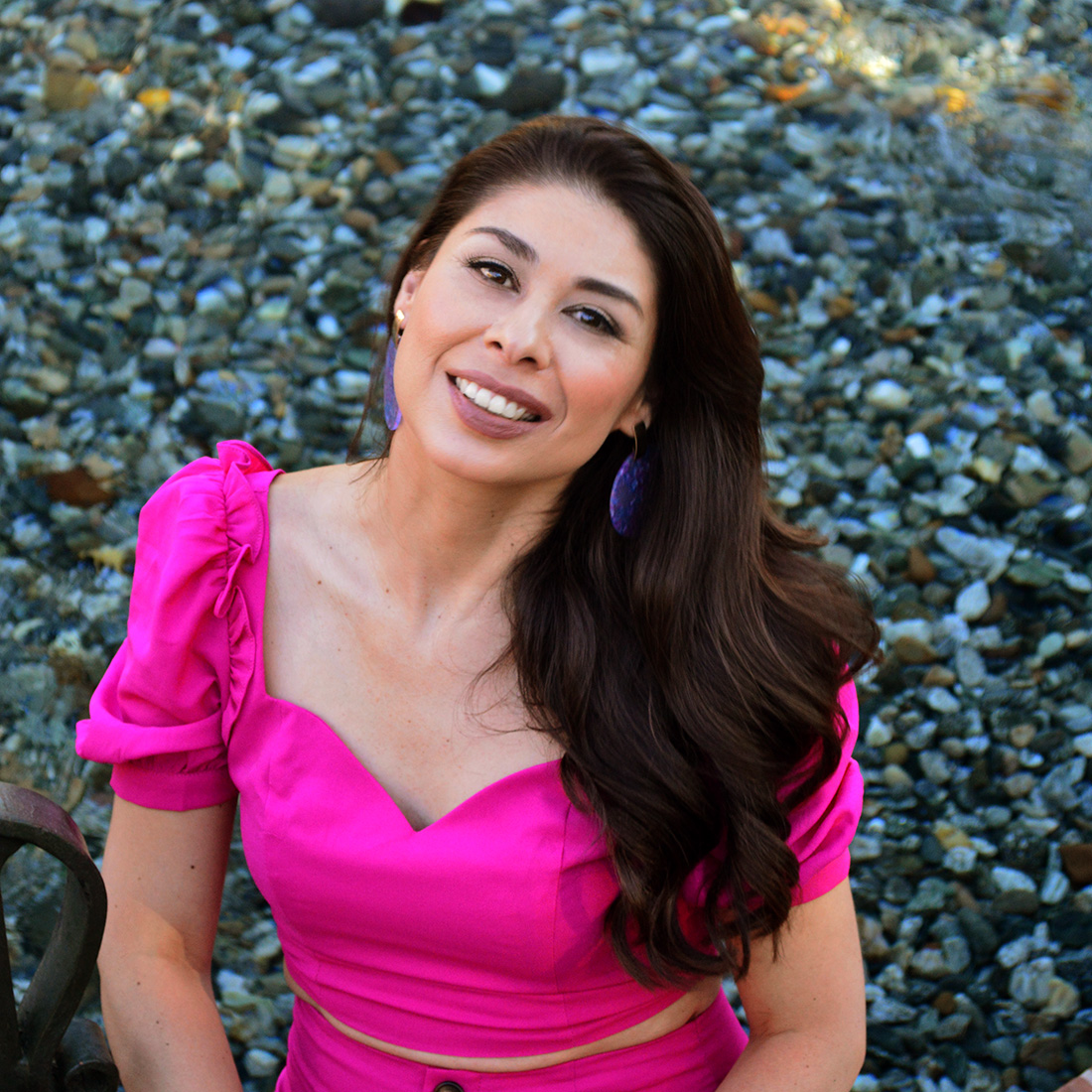
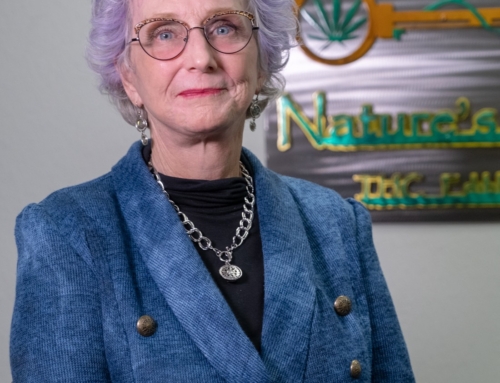
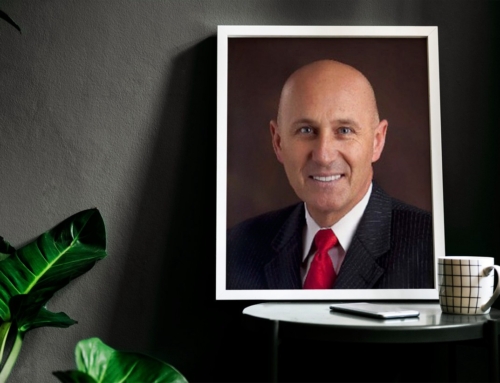
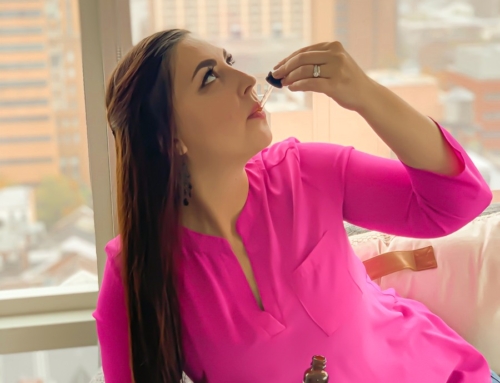

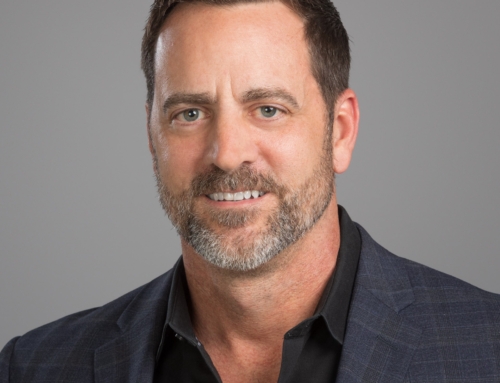
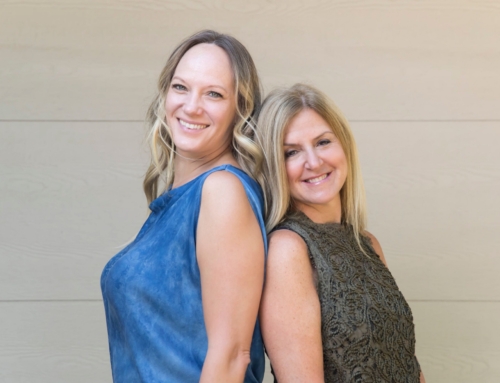
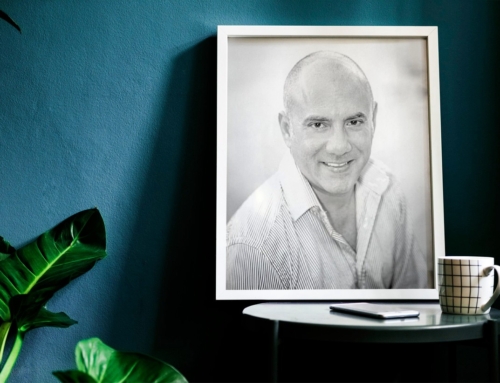
![“The potential to help people [in this industry] is enormous, but there’s still so much to learn.” – Ramon Alarcon, Witi](https://lakesideremedy.com/wp-content/uploads/2020/12/1thj5ekUyxQ69iLz1JJyODg-scaled-e1607882756286-500x383.jpeg)
